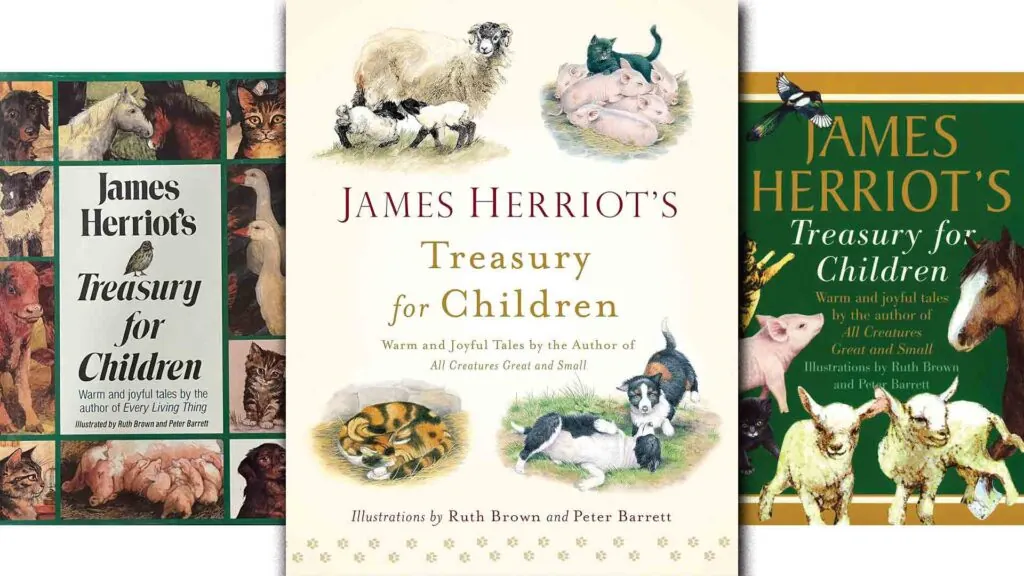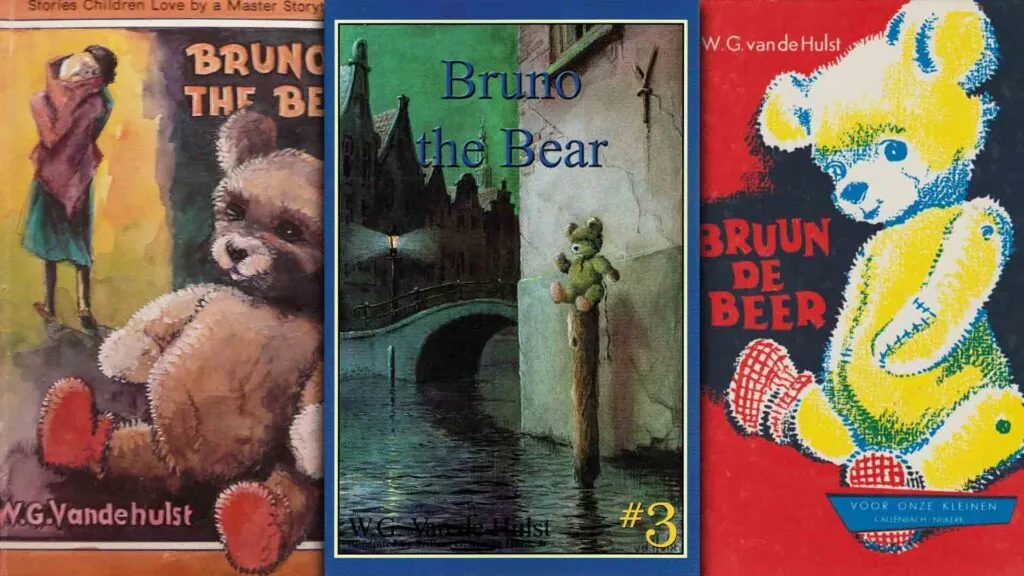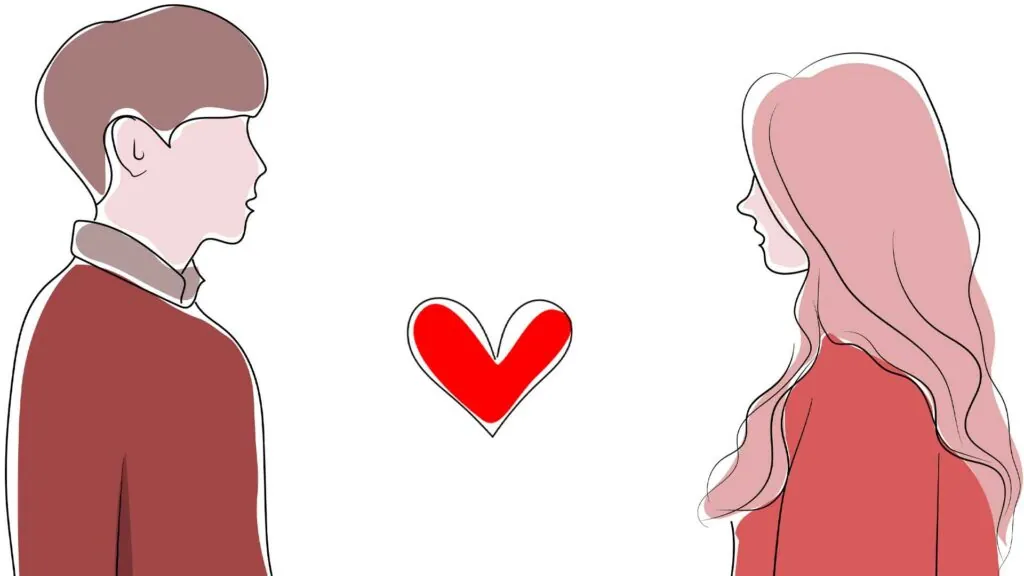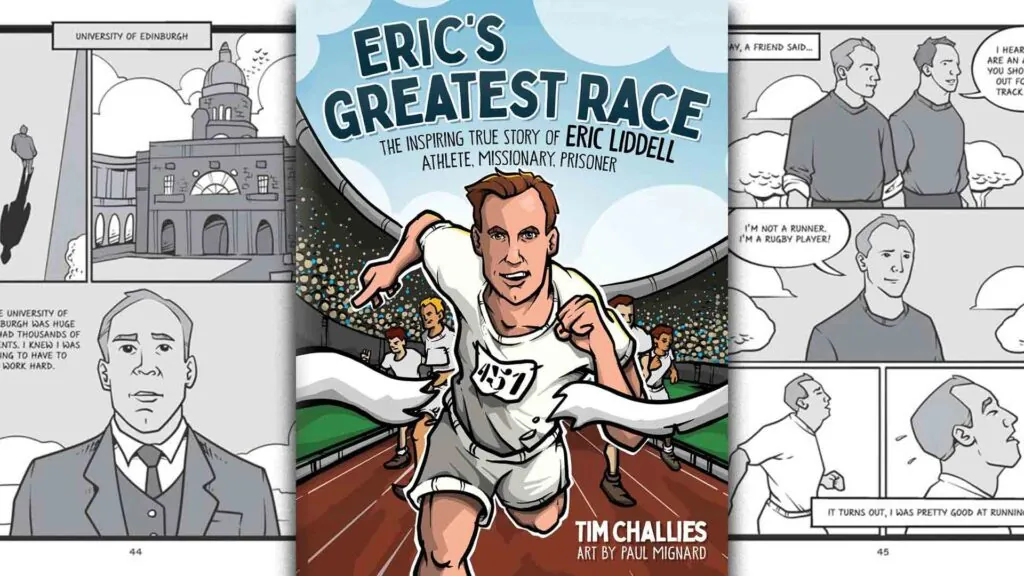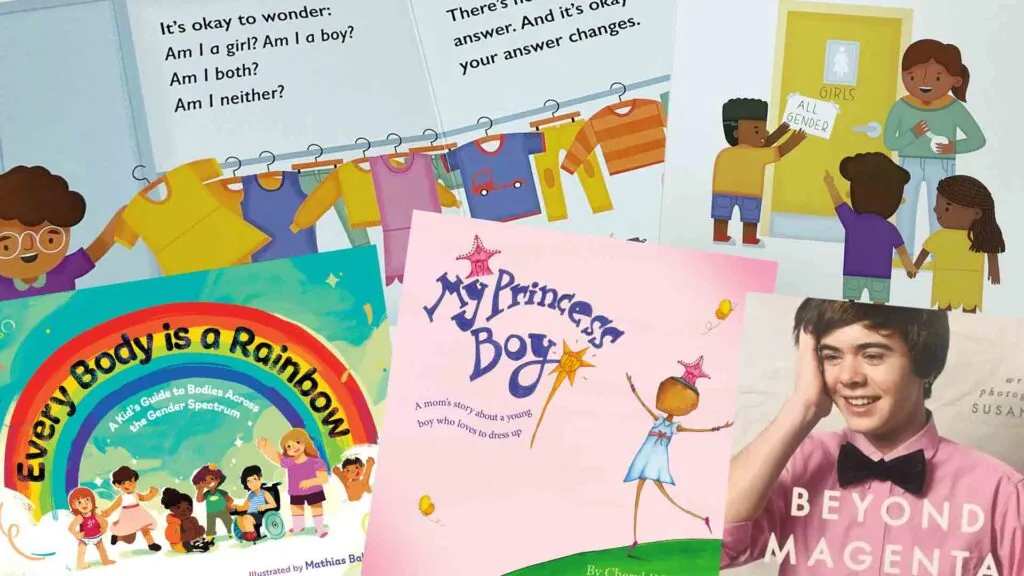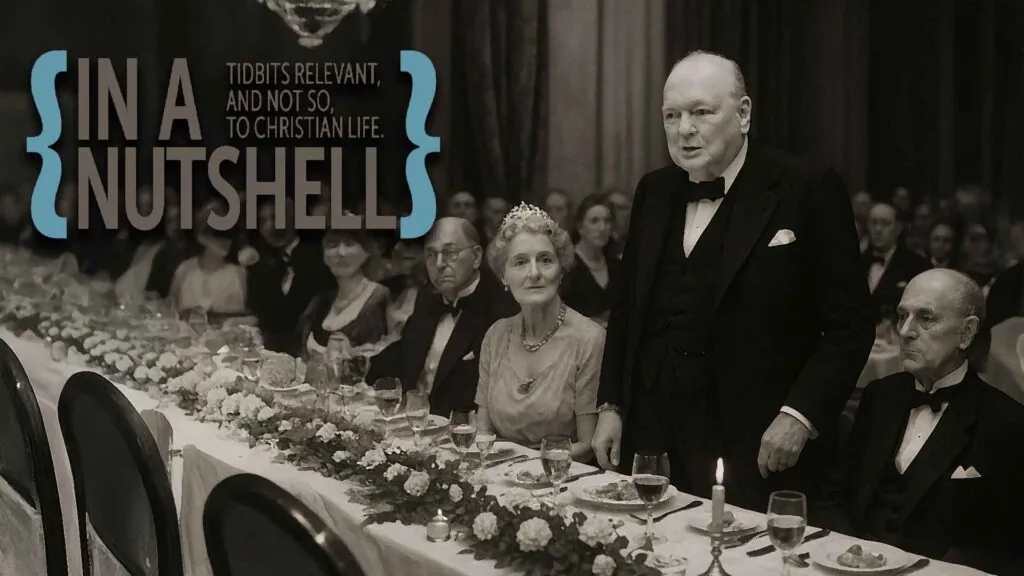Tidbits – August 2025
Husbands, build up your wife
R. Kent Hughes in Disciplines of a Godly Man, on Churchill at his very best:
“Winston Churchill once attended a formal banquet in London, where the dignitaries were asked the question, ‘If you could not be who you are, who would you like to be?’ Naturally, everyone was curious as to what Churchill, who was seated next to his beloved Clemmie, would say. After all, Churchill would not be expected to say Julius Caesar or Napoleon. When it finally came Churchill’s turn, the old man, the last respondent to the question, rose and gave his answer. ‘If I could not be who I am, I would most like to be’ — here he paused to take his wife’s hand — ‘Lady Churchill’s second husband.’ The old boy made some points that night. But he also said it for everyone who has a good marriage.”
One step to a balanced budget
Billionaire Warren Buffet once proposed a one-point plan to ensure the United States would always have a balanced budget. It was a half-serious, half-genuine, 100-per-cent-genius suggestion. And it's equally applicable in Canada.
"You just pass a law that says that any time there's a deficit of more than three percent of GDP, all sitting members of Congress are ineligible for re-election. Yeah, yeah, now you've got the incentives in the right place, right? ….If you guys can't get it done, we'll get some other guys to get it done. The only problem: the people who would have to pass such a law are the same people who would lose their jobs."
Worst names
In an old copy of Reader’s Digest, one letter writer noted that their relatives had gotten married in the Boring Baptist Church. It was a curious name. Might it have come about as a reaction to the seeker-sensitive marketing that has churches hyping that "We have a great band, a puppet ministry for the kids, and the very best coffee bar in town!"
But no, this is simply what the folks in Boring, Oregon called one of the local Baptist churches. A bad name, to be certain, but better than what the congregations have to deal with in Falls, Virginia. Who wants to say they go to a Falls church?
Clues for the clueless
Modesty is a battle that every upcoming generation seems keen to wage. So if your teens are either wearing their clothes too high or too low, here's a couple tips that may be hepful.
BOYS: If their pants hang low, arrange for the little sister to point out: "Freddy, I can see your panties!” That should do it.
GIRLS: This line might be best delivered by mom, or maybe grandma: "If you can’t sit down in it without being indecent, it isn’t decent.”
Playing at religion
C.S. Lewis, in Miracles, wrote about sinful man's tendency to pretend to seek after God. But what may come of even that when the Holy Spirit is involved?
“It is always shocking to meet life where we thought we were alone. ‘Look out!’ we cry, ‘It's alive!’ And therefore this is the very point at which so many draw back – I would have done so myself if I could – and proceed no further with Christianity. An ‘impersonal God’ – well and good. A subjective God of beauty, truth and goodness inside our own heads – better still. A formless life-force surging through us, a vast power that we can tap-best of all. But God Himself, alive, pulling at the other end of the cord, perhaps approaching at an infinite speed, the Hunter, King, Husband – that is quite another matter. There comes a moment when the children who have been playing at burglars hush suddenly: was that a real footstep in the hall? There comes a moment when people who have been dabbling in religion (‘Man's search for God!’) suddenly draw back. Supposing we really found Him? We never meant it to come to that! Worse still, supposing He had found us!”
A bumper sticker worth 1,000 words
A good question can be a powerful thing (as Jesus demonstrated in His earthly ministry).
Spurgeon – the rap
If you've got reservations about rap, that's understandable – like rock and pop, most of it is horrible. But consider also what a Reformed rapper can do with this genre. Here's Shai Linne, with part of Verse 3 from his ode to Charles Spurgeon. (Click here to hear him perform it.)
To observe this servant is extremely instructive
One word about Spurgeon is he was productive
Preached Jesus - no speakers - loudly he’d shout it
Each week packed houses of crowds in the thousands
His sermons were published - sixty-two volumes
He worked almost like he just knew he would die soon
Made mad disciples, passed on his knowledge
Established a school to train pastors in college
Sold out to the Lord Jehovah, his portion
Also he built two homes for the orphans
A monthly magazine, plus he wasn’t too busy
to write books - about a hundred and fifty
God’s grace in Spurgeon was manifest
But remember, the best man is a man at best
Yes, he struggled with depression - consistently sick, kid
Both he and Susannah, physically afflicted
He experienced as a servant of Jesus
The power of God made perfect in weakness
Later on comes complications
His stands for orthodoxy got him shunned by his denomination
But through all the hardship and all the controversy
He never stopped relying on the sovereign God of mercy
And when he had finished pressing towards the goal
He entered into heaven at the age of fifty-seven
His life is a case of God’s grace effectively
At work in sinners to leave a great legacy
The proof is many years later in your speakers
We’re praising Jesus for raising up the "prince of preachers."
Don’t all religions lead to God?
In Together for GOOD, Jay Adams gives readers a fictionalized conversation between Greg Cunninghamm, a pastor, and Bob Rawlston, an unbelieving man wrestling with the Book of John. One of the Bob's struggles is with John 14:6 where Jesus says, “I am the Way and the Truth and the Life. No one comes to the Father except through Me." It is the exclusive claim of the last sentence that bothers Bob.
"I always thought that whatever religion you accept, so long as you are sincere, it will ultimately lead you to God. But Jesus doesn't provide much room for anybody except those who believe in Him."
The pastor has two responses well worth considering:
"If all religions lead to God, surely He wouldn't be much of a God since He'd be a contradiction in Himself. You see, since every religion contradicts every other, and if all of their ways lead to God, then God Himself must be confused. You wouldn't want to believe in a God who says one thing today and the opposite tomorrow, one thing to one person and the opposite to another, I'm sure?
".... And think of this: if people can be saved from their sins some other way than by believing the Gospel, then Jesus' crucifixion was not only a senseless tragedy, but sending Him to die was a stupid, brutal act on God's part. No matter how you squeeze it, when you think rationally, you have to come to the conclusion that if there's one God, there can only be one way."
Math to make you smile
In Craig Damrauer’s New Math the author takes everyday language and gives the words mathematical definitions. Sometimes the results are insightful. His definition of a Ponzi scheme makes it evident that those that fall for them are, most often, looking to get something for nothing: Ponzi scheme = ROI – R – I (ROI stands for Return On Investment).
Other definitions are merely humorous. Here are a half dozen of the best.
MODERN ART = I could do that + yeah, but you didn’t
PERSEVERANCE = if at first you don’t succeed + repetition
DOG = cat + loyalty
REVENGE = do unto others – as you would have them do unto you
CHILDREN = joy – sleep
LOSING ARGUMENT = you’re right + I’m sorry
REALIST = pessimist + good PR
Why read Christian biographies?
In his article, "Brothers, read Christian biographies," John Piper explained why we should:
“Hebrews 11 is a divine mandate to read Christian biography…. If we asked the author, ‘How shall we stir one another up to love and good works?’ (10:24), his answer would be: ‘Through encouragement from the living (10:25) and the dead’ (chap. 11). Christian biography is the means by which ‘body life’ cuts across the generations.”
Danger of biblical biographies
I once read a fictionalized biblical biography of Paul that left me thinking that he and James fought over whether we can be saved by works or faith. I learned later that this was the author inserting his own perspective, and, not yet discerning enough to sift what was biblical from what was fiction, I swallowed it all. Some years back, Joanna Voschezang, writing in the Faith in Focus denominational magazine of the Reformed Churches of New Zealand, expressed a similar concern:
“ sub-genre within that of biography is a section which could just as well be entitled ‘Biblical Novels.’ There are a number of books that have been written about people in the Bible such as Rahab, Joshua, Moses and Tamar. These books are written with very little factual, biblical information to go on and yet an entire story has been made around it. The danger of these books is that they can color your view of that biblical character for the rest of your life and yet 95 percent of it will be conjecture on the part of the author. When it comes to the lives of those in the Bible it is best to stick with the original source – God’s holy Word!”
The real thing
In Charles Martin’s When Crickets Cry, the main character has a frank conversation about pornography with a young man named Termite.
"Your mind imprints images, especially that kind, on the heart, so that ten and fifteen years down the road, when you're married and trying to make something out of your life, they come drifting back, bubbling up and reminding you how much greener the grass is outside your own bed. I have loved one woman in my lifetime...she's been gone five years, but, I've got enough memories to last a lifetime, and I wouldn't sell you a single one for every picture in every magazine around the world. And you know something– the ones where she has her clothes on are worth just as much as the ones without.... Love is no tool; neither is a woman's heart."
….Termite scoffed and shoved the last bite of jerky into his mouth “How would you know? You just said you’ve loved only one woman. I think you need to test-drive a few cars before you buy one."
"You can buy that lie if you want, but if you're working for a bank, you don't study the counterfeit to know the real thing. You study the real thing to know the counterfeit.... From out of the heart, you speak. You put that crap in your heart, and you can't help but find it coming out your mouth. It'll color and flavor your whole person. Pretty soon, it'll eat you up."
Cults flourish wherever the Church is neglectful
Some cults are started by charismatic figures with large egos – they are quite happy to have the attention on themselves rather than God. But as Jay Adams explained, sometimes it is the Church that is to blame for the rise of a cult:
"…as someone has said, 'Cults are the unpaid bills of the Church.' What does that mean? Simply this – whenever the church of Jesus Christ fails to emphasize some truth, and becomes imbalanced in one direction or another, it leaves room for a cult to creep in and take over that area of theology which it has neglected. You didn’t pay your bill, so someone else moves in to take possession of what was your God-given responsibility to teach in the first place. Take the days in which there was little emphasis upon eschatology. The Adventist cults gained favor. The period in which there was little concern for pastoral care led to the beginnings of the healing cults."
From insult to insightful
"The urge to save humanity is almost always only a false- for the urge to rule it.”
Some quotes age well. This bit, from H.L. Mencken (1880-1956), was originally targeting Christian missionaries heading off to “foreign parts” and, in that context, was simply insulting. But today, when we have would-be environmental, economic, educational, and political saviors, all of whom are demanding more control and more power, Mencken’s words have become insightful....












